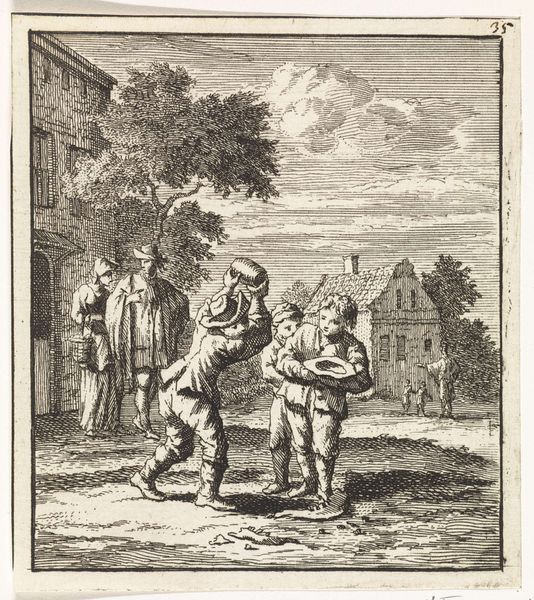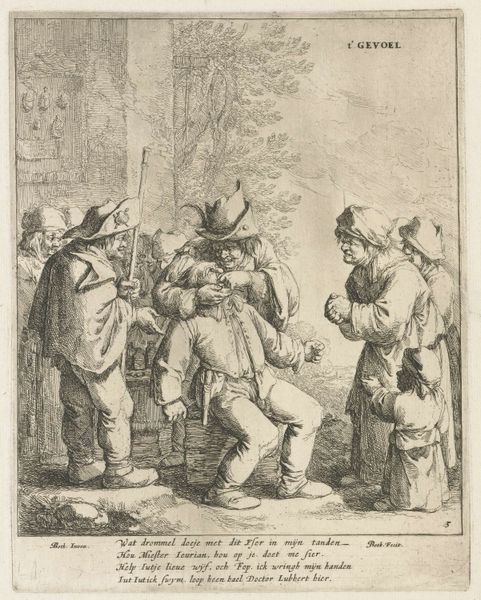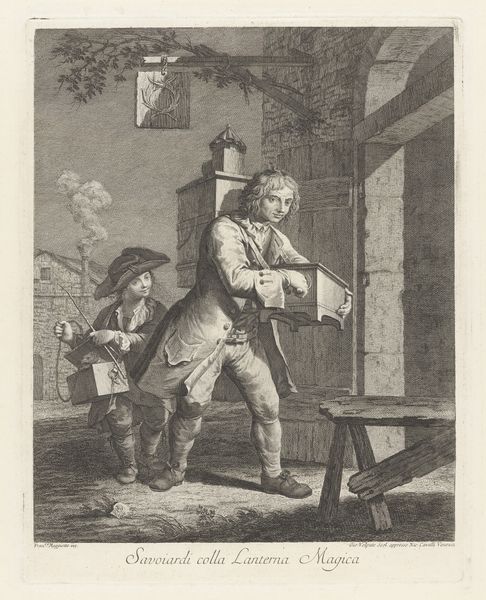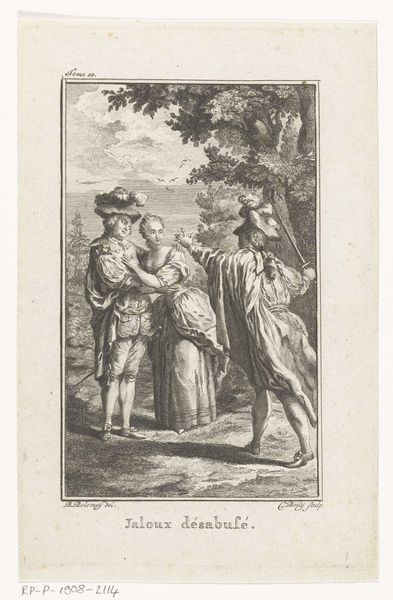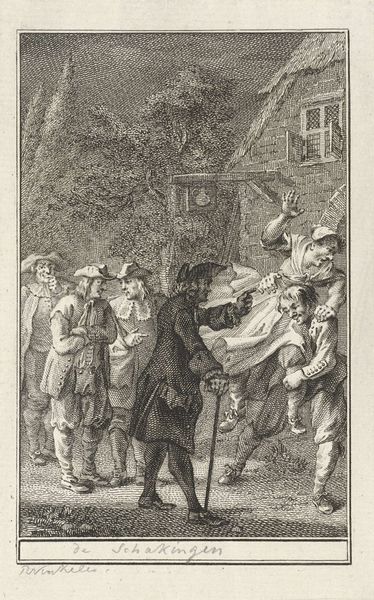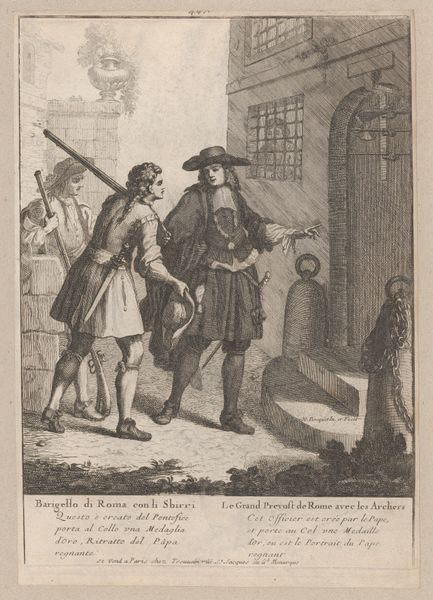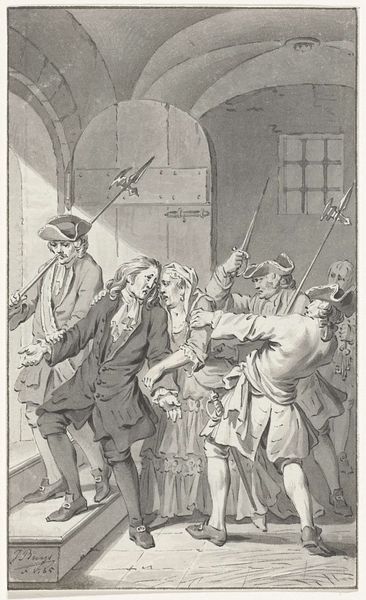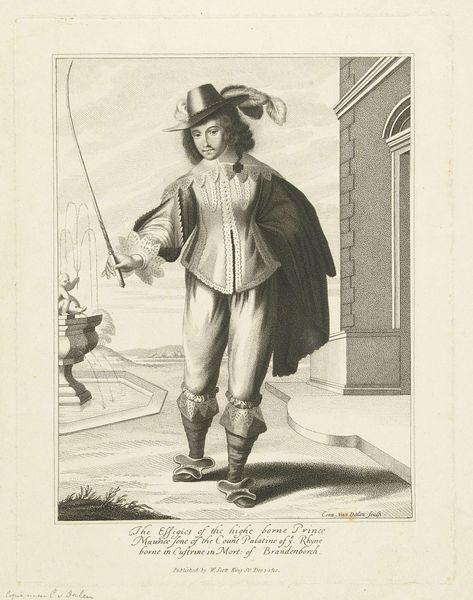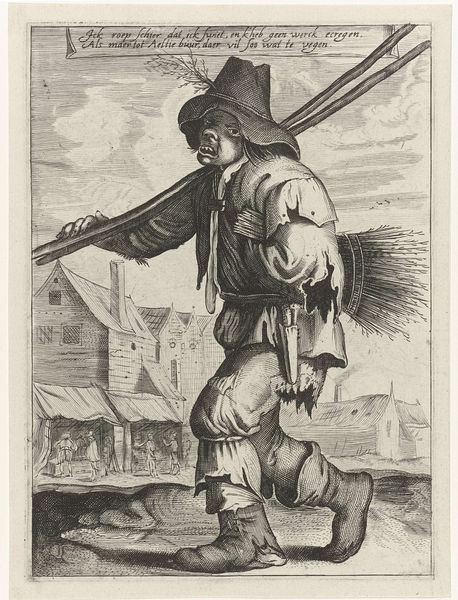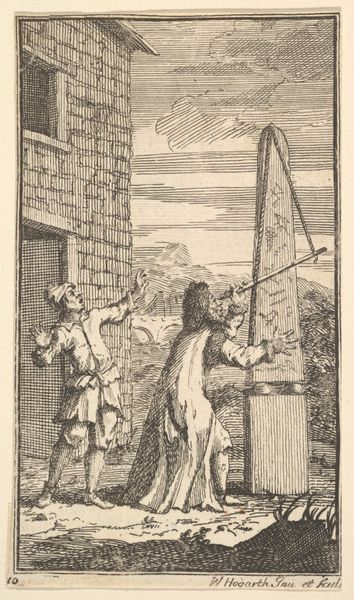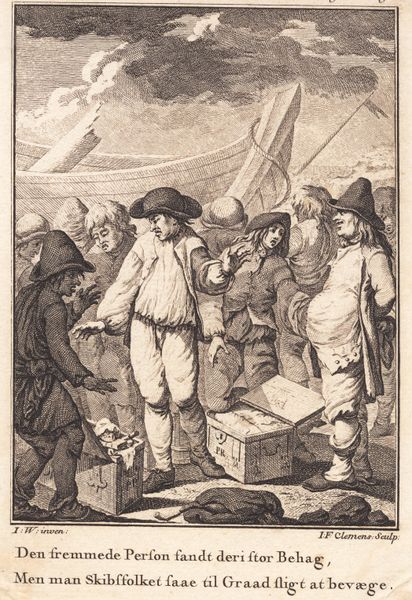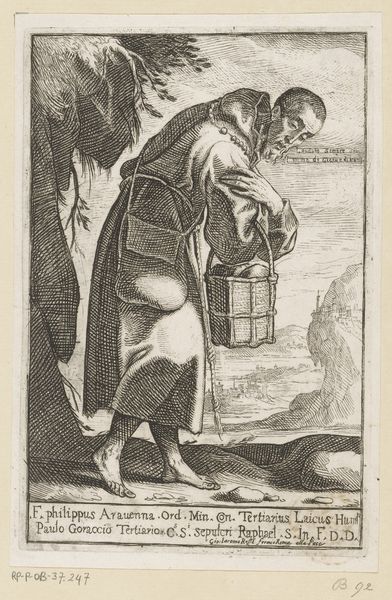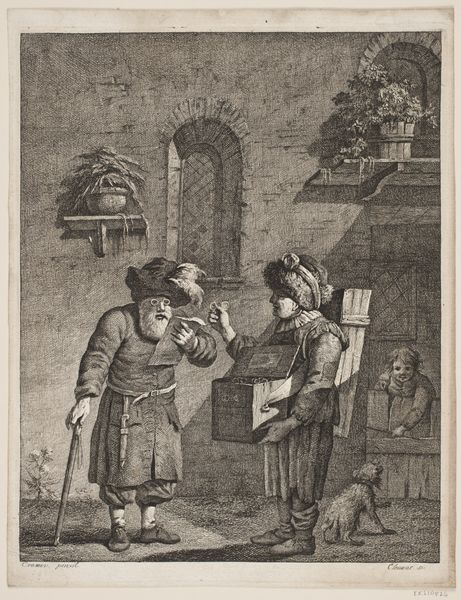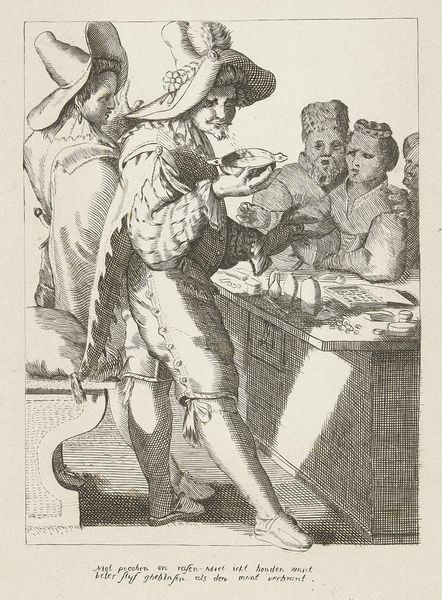
print, engraving
#
narrative-art
#
baroque
# print
#
landscape
#
figuration
#
genre-painting
#
engraving
Dimensions: height 208 mm, width 167 mm
Copyright: Rijks Museum: Open Domain
Petrus Johannes van Reysschoot created this print, “The Happy Man,” using etching in the 18th-century Netherlands. It depicts a man, perhaps a bit drunk, being led by a woman, presumably his wife. This image presents a moment of everyday life, one where the common man takes centre stage. Unlike the heroic images of monarchs or religious scenes that dominated art institutions, here we see the concerns of a different social order. Look at the way the man’s disheveled appearance contrasts with the tidiness of the landscape. This wasn't art intended for the church or nobility. Instead, prints like these found their place in middle-class homes, marking a shift in patronage and the democratisation of art. To fully appreciate works like these, one must dig into the social and economic structures of the Dutch Golden Age. By examining period literature and archival records we get to see the values and anxieties that shaped artistic production. It reminds us that art isn’t made in a vacuum, it's a product of a specific time and place.
Comments
No comments
Be the first to comment and join the conversation on the ultimate creative platform.
